Interview with Ryota Hayafuji
1November 2, 2013 by Ville Raivio
VR: Your age and occupation?
Products from Pukimo Raivio
Ralph Lauren, Black Label suit, size 52EU
RH: I am 41 years old, and my occupation is shoemaker. I am currently based in Münich, Germany, but I am Japanese.
VR: Your educational background?
RH: I graduated from The Cordwainers’ College in London with a Higher National Diploma in Footwear Technology.
VR: Have you any children or spouse (and how do they relate to your shoe enthusiasm)?
…and your parent’s and siblings’ reactions back when you were younger?
RH: Either fortunately or unfortunately, I am single. So I cannot say what my wife or kids think about my profession. But my friends think it’s cool! My parents were supportive of my career. When I was a child, I liked drawing cartoons and being creative. My mother was a hairdresser, so she understands how rewarding it is to work with your hands. My father was very easygoing. He just wanted me to pick a career that I enjoyed doing.
VR: What other hobbies or passions do you have besides shoemaking?
RH: I enjoy cycling around Münich and drinking beer. The two are a good combination. I go all around Münich, just wandering and keeping an eye out for interesting things or people – looking for anything that will surprise me. I really enjoy going to flea markets and searching for treasures. Even though it’s usually all rubbish. Doing these activities inspires my shoemaking more than anything.
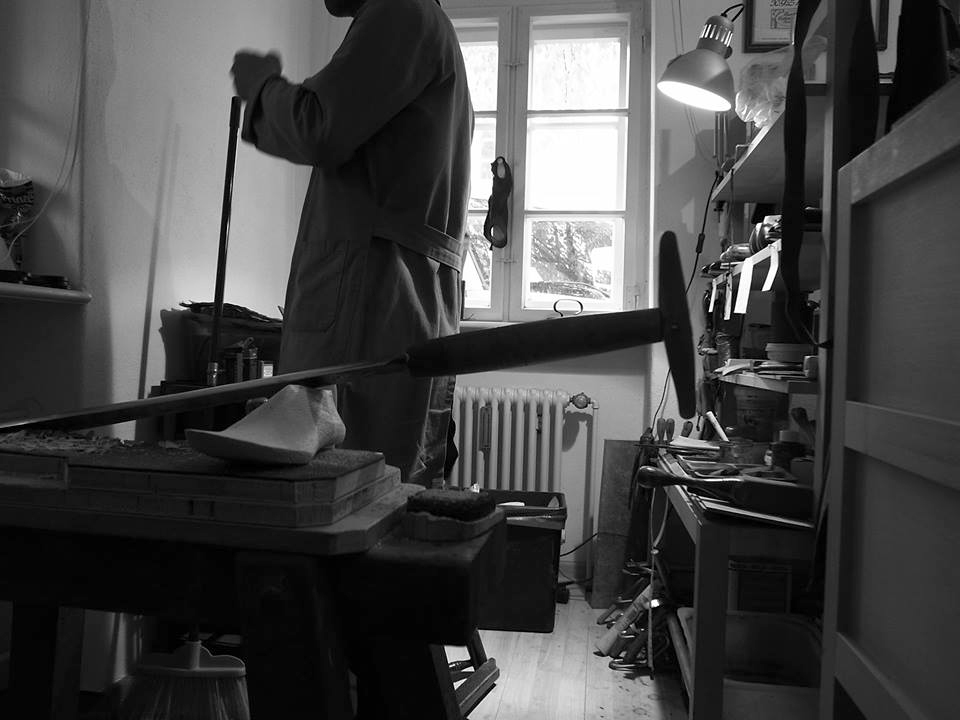 Featuring the shoemaker’s stock knife for hand-carved lasts
Featuring the shoemaker’s stock knife for hand-carved lasts
VR: How did you first become interested in shoes, and when did you turn your eyes towards artisanal shoemaking? Why classics instead of fashion?
RH: When I was around 10, my father handed down a pair of sneakers to me. Wearing something that my father had worn made me feel very special. I felt like a different person than when I wore children’s shoes. My father’s shoes were too big for my feet, but I was excited for my feet to grow so that I could fill them. The connection I had with my father’s shoes kindled my interest in footwear. I decided to get into shoemaking when I was in high school. I had some pairs of shoes I really liked, but they would break down quite quickly. When I was 20 or 21, I discovered a pair made in England. They had a double construction stitching, and they could be repaired even when the outsole was damaged. The possibility of repairing shoes really interested me. Later on, I discovered that shoes were not made just in factories, but also by shoemakers with skills developed centuries ago in Europe. Learning this had a big impact on me because it showed me that a pair of shoes made by a shoemaker has a hidden story and character.
VR: How have you gathered your knowledge of this area — from books, in-house training, workshops or somewhere else?
RH: When I was 23, I found an article about The Cordwainers’ College in London. I was desperate to go, but I saw the tuition was very high for international students. I saved money for four years by getting a job as a shoe salesman in Tokyo. The shoes I sold were classically made in England, The U.S., Italy and France. Later, I had an opportunity to visit a small shoe factory in Japan, which set my imagination on fire. Shortly after that I left Tokyo for London to attend TCC. There I was trained by a bespoke cordwainer who was an outworker of a major London shoemaker. TCC also has a library full of books on shoemaking. After graduating I was eager to begin working, and I decided to move to Paris. There I got to know a bottier, who taught me the Parisian style of shoemaking.
VR: How would you describe your own dress? Which tailors or RTW makers do you favour for clothes?
RH: My style is a little bit dapper. I think people typically imagine a shoemaker as someone wearing old shirts full of holes and covered in dirt. Shoemaking is perceived by many to be a construction type-job. I dress sharp to show that I take my work seriously. When I’m working, I wear a shirt and tie with a working coat and an apron. On my feet I will be wearing a pair of my own shoes, and they are almost always brown. On weekends, depending on the weather and my feeling, I dress a bit more relaxed. I get a lot of my clothing from flea markets and quality second hand stores. I wear some very old things. If I were to have something tailored, I would call up my friend Mr.Ueki’s “Sartoria Ciccio”, or my other friend, Mr. Osaku, a pants maker.
VR: Please tell us why you decided to set up your own company in Germany, and what goals you set for yourself in the beginning. How have you been received so far?
RH: Ending up in Germany was an accident. I first came to Münich in 2009, on a student visa. I then turned that into a trainee visa, then into a work visa, and then a self employee visa! I decided to set up my work here because I really enjoyed the Münich lifestyle – not because of Germany’s handmade shoe culture. There were good shoemakers here many years ago when Germany had a king. But with the industrial revolution, the traditional shoemaker craftsmen weren’t able to survive. I find it sad that this classic European skill is being lost. It’s a little bit strange feeling as a Japanese man trying to continue the traditions of Europe.
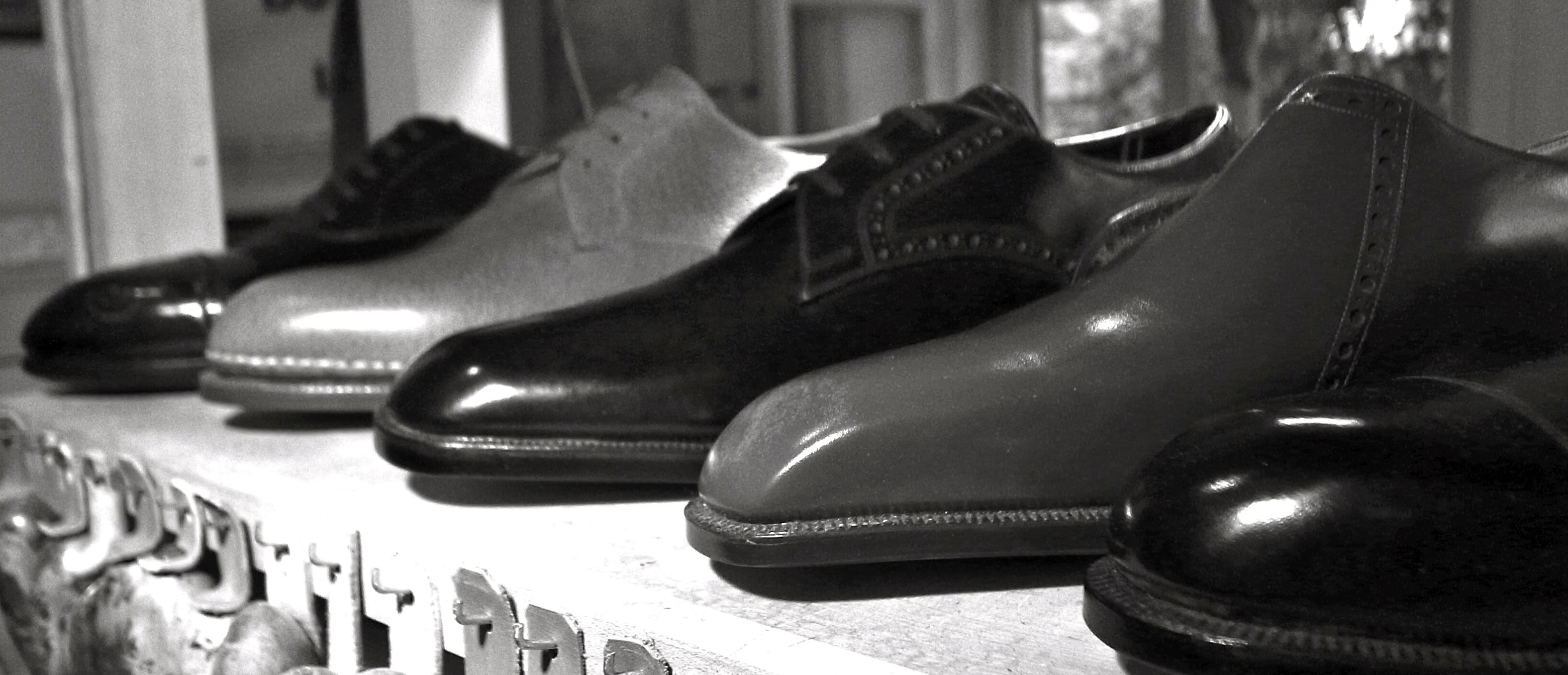 Toe shapes, welts, tight stitches
Toe shapes, welts, tight stitches
VR: How would you describe the ‘house style’ of the shoes you make?
RH: I think all my shoes look like they could have been worn in the 1920s or ‘30s. I only make designs with simplistic beauty. I want my shoes to be timeless, not gaudy.
VR: Do you have a favourite shoe model (eg. monk, derby, oxford, balmoral boot) and leather type?
RH: My favourite material is calf leather. It is strong and very useful when making shoes and the color is classical. My favorite shoe is an original v-front derby. While I was in Paris, struggling to find work as a shoemaker, I hit upon a design idea. That model is my souvenir of a time in my life, so I will always have a strong connection to it.
VR: There are dozens of cordwainers in Germany alone — why should my readers visit you?
RH: What I love about Münich is the area I live in. Within my neighborhood of Haidhausen, there is a craftsmen’s village. Around 23 years ago, a law was instated to reserve this area for artisanal craftsmen only. Nearly all my neighbors are artists, and I think it is the best part of the city. I ran away from the bustle of big cities. Now that I’m living in Haidhausen, I’ve found that I have more energy and creativity than before. I think that when customers look at my shoes they can see both the shoemaking history of the big European cities, and the relaxed spirit of Haidhausen.
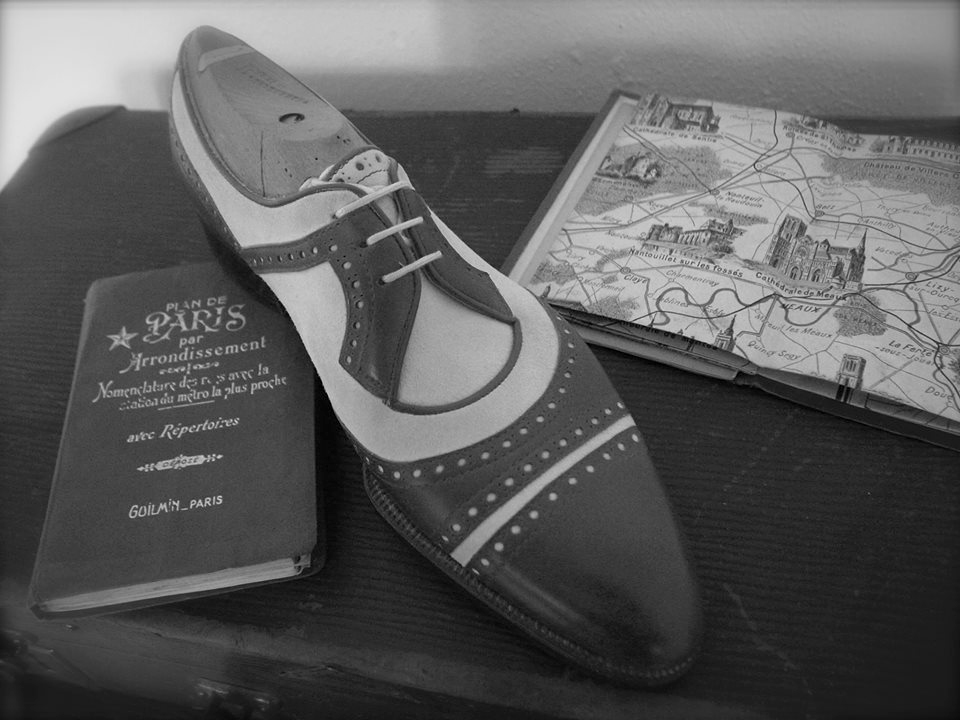 The Hayafuji signature model: The RH V-front Derby
The Hayafuji signature model: The RH V-front Derby
VR: Over the years you must have learned much about the fine world of footwear. Is there something you wish more men would know about shoes? This is an extremely useful chance to have a lasting effect on my younger readers.
RH: There are two schools of thought to menswear. Some people want to wear the trendiest brands and get noticed. Other people are more interested in understated quality and craftsmanship. I can see the benefits of both sides. It is a personal preference depending on how someone lives his life. I respect people on both sides. Myself, I prefer men’s classics. I like vintage style and things that smell and feel luxurious. Classics have no limit on their lifetime and can be repaired. On the other hand, trendy menswear is fast changing. When it is no longer in style, it is discarded. I don’t want to be putting clothes in the rubbish – I want to repair them.
Category Cordwainers, Interviews | Tags:

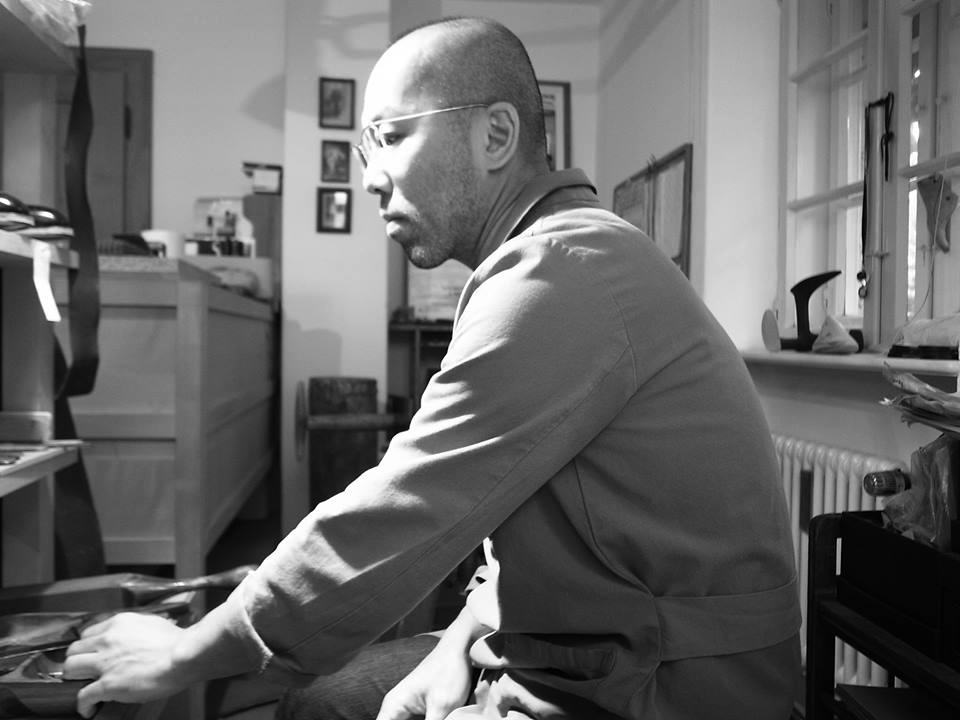
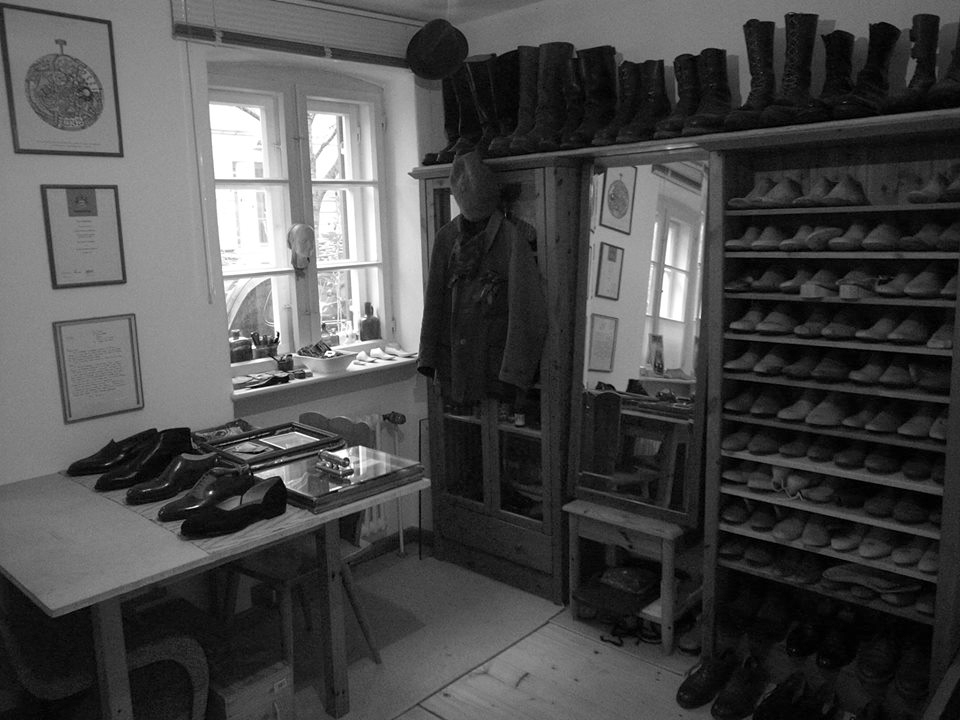
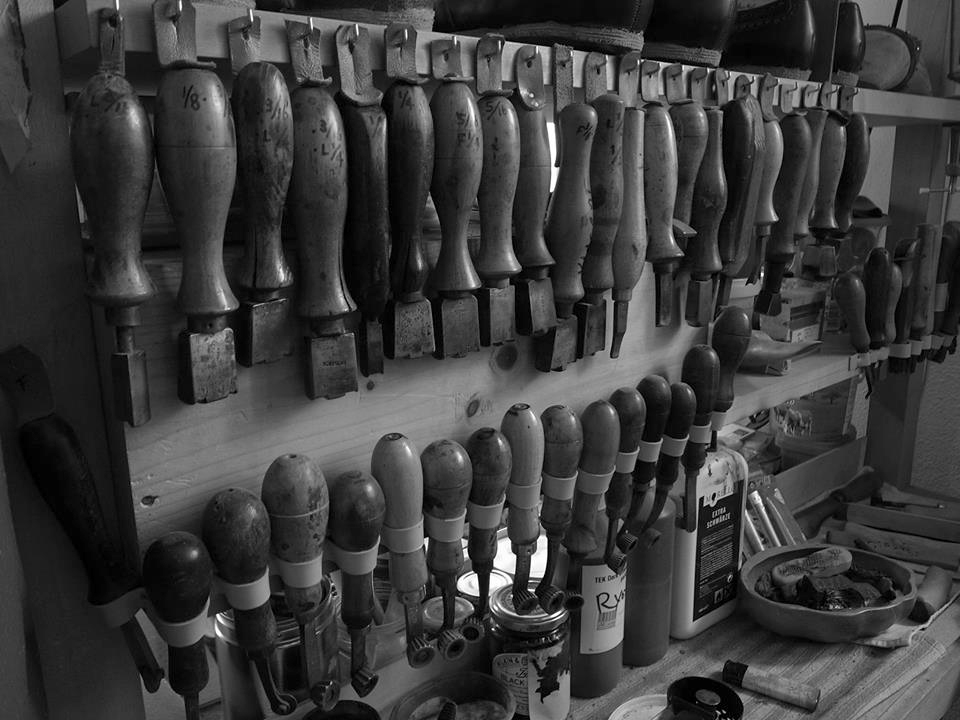
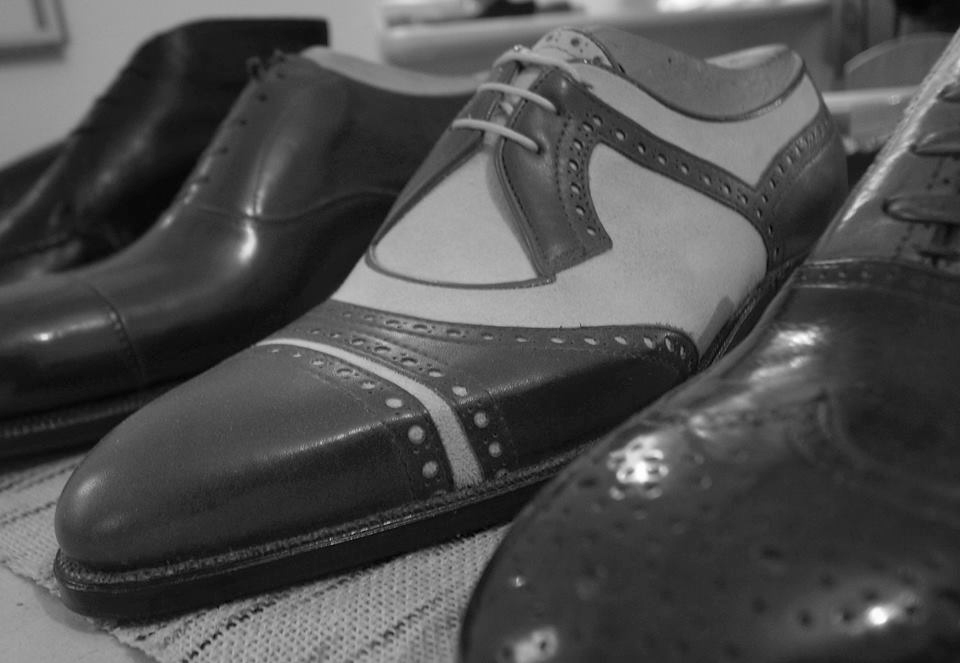
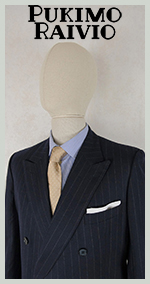

[…] 順慶町アーバンライフ 日本, 〒542-0081 大阪府大阪市中央区南船場4丁目9−6 順慶町アーバンライフ A very refreshing concept of vintage goods, shoe repair as well as shoe shining. They also host Ryota Hayafuji for his bespoke trunk show twice a year. Ryota Hayafuji was is a Japanese maker based in Munich. Full interview with Ryota Hayafuji HERE. […]